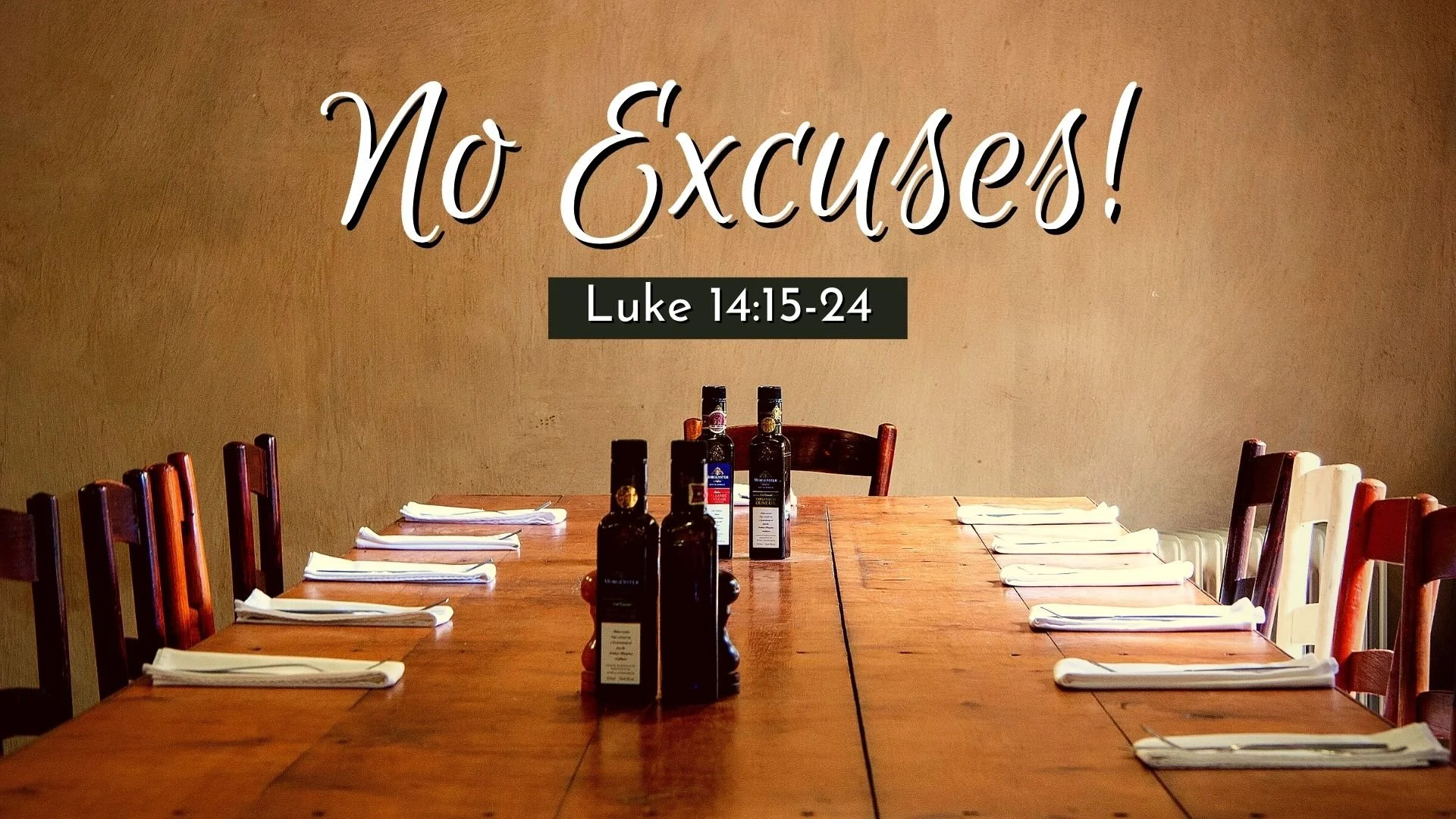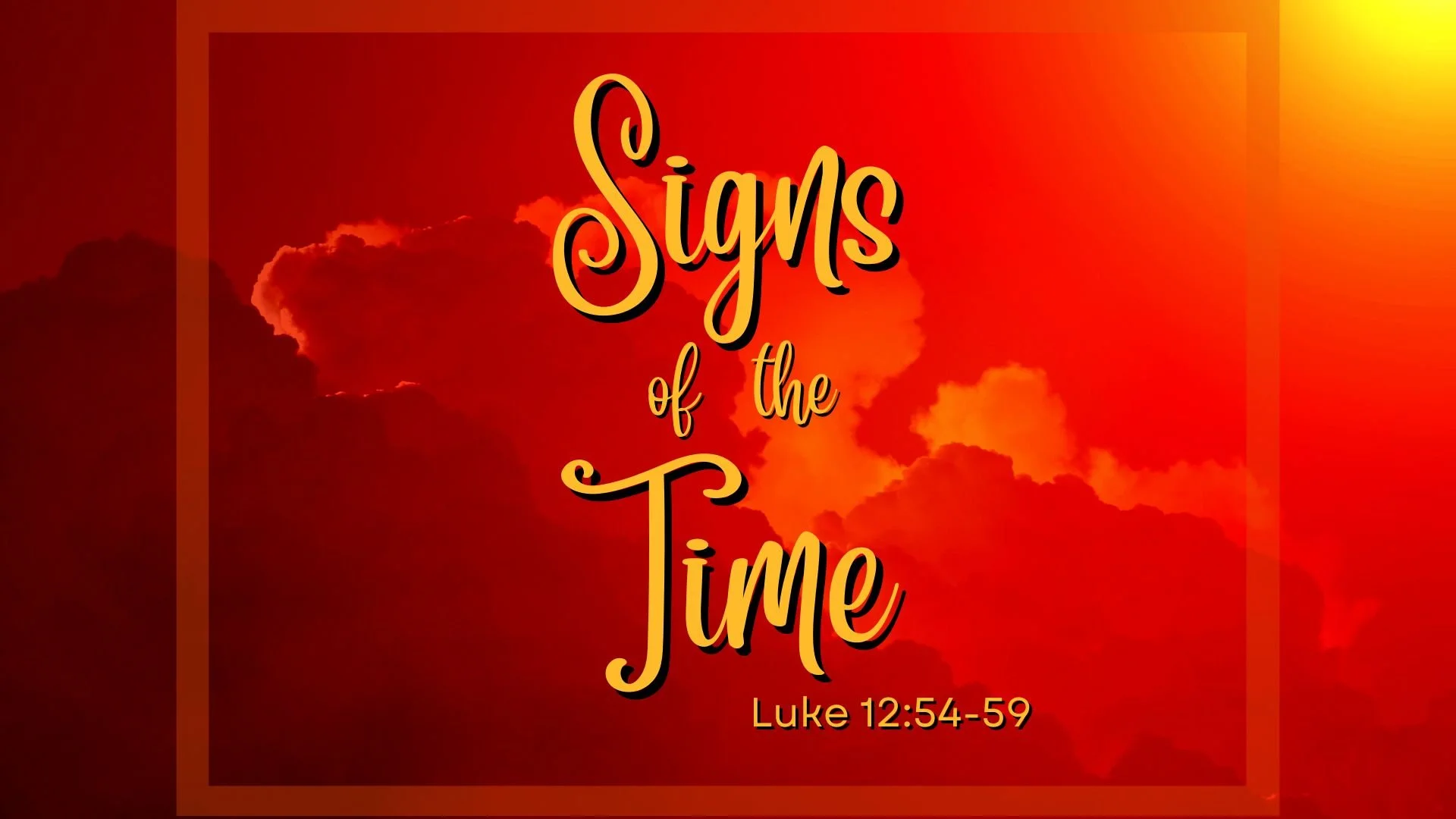Series
- Baptism
- Christ-Centered Living Series
- Christmas
- Discipleship
- Easter
- Faith
- Father's Day
- God's Faithfulness
- Grandparents' Day
- Holiday
- Labor Day
- Living With Purpose Series
- Love More Love Better
- Love in Action Series
- Memorial Day
- Mother's Day
- New Year's
- Palm Sunday
- Prayer
- Road to Redemption
- Spiritual Gifts
- Spiritual Growth
- Stand Alone
- Thanksgiving
- The Epistle of James
- The Gospel of Luke
- Veterans Day
- prayer
The Lost Sheep
Jesus expresses, through a three-part parable, the desire of God the Father for the lost to be saved. In the first part of the parable, Jesus responds to the mutterings of the Pharisees and teachers of the Law over the fact that Jesus welcomed and ate with tax collectors and "sinners", by telling about a person who had 100 sheep and lost one. Jesus, in an attempt to challenge their hypocrisy and inconsistency, asked them if they would consider doing anything differently than the man who left the 99 sheep in the open country to go search for the lost sheep until he found it, and joyfully brought it home, and invited his neighbors and friends to celebrate with him over finding his lost sheep. Not only do we find out about the love of God for those who are lost but also the joy of God for those who repent. We are also challenged to have the same attitude toward the lost as God and to rejoice when sinners are saved.
Counting the Cost
Jesus encourages the crowds of people who think that they want to be His disciples to count the cost of not being a disciple versus the cost of being a disciple. Jesus makes it very clear that there is a cost to following Him. You will have to re-prioritize the relationships in your life and put Jesus first, you will have to sacrifice yourself and your desires, and you will have to relinquish your control over your worldly possessions.
Following Christ is not cheap, nor is it easy,
but it is well worth the cost.
No Excuses!
Jesus tells a parable of a man who invited many people to a banquet to which three men make excuses as to why they cannot attend. The lesson is about people who try to delay or resist responding to Jesus' invitation to salvation by making excuses. Jesus says that if people reject His invitation they will be rejected for entrance into His kingdom.
Don't make excuses, do what is required of you in response to the invitation.
Honor Through Humility
After healing the man suffering from dropsy at the home of a Pharisee, Jesus saw how the guests were picking the places of honor at the table and was moved to tell a parable that illustrated the people's desire to seek honor. Jesus mentions that there are two ways that people seek out honor: through arrogance or through humility. Jesus encourages the guests to humbly seek out the lesser places of honor, rather than picking the places of honor so that the host won't humiliate them in the presence of the other guests by making them give up the place of honor to someone more distinguished than them. It is better to choose a lower place of honor and have the host move you up to a better place and be honored in front of the other guests. The main point that Jesus makes is that "those who exalt themselves will be humbled and those who humble themselves will be exalted."
Then Jesus tells the host that whenever he gives a banquet not to invite those whom he knows will repay him by inviting him to a dinner in return, but to invite the poor, the crippled, the lame, and the blind, who cannot repay him, and he would be repaid by the blessing of the resurrection of the righteous.
Caught In Their Own Trap
Jesus is invited to eat at the home of a prominent Pharisee, where a man suffering from dropsy has been planted as bait to see if Jesus would heal him on the Sabbath.
The Pharisee and the experts in the law are watching Him closely to see if He takes the bait. Jesus, however, sees through the setup and turns the tables back on them.
Knowing their thoughts and intentions, Jesus asks them if it is lawful to heal on the Sabbath or not. They remain silent, because Jesus put them in a position where if they say yes it is lawful, it undermines their condemnation of people who have violated their laws regarding the Sabbath and if they say no it is not lawful, it brings up questions regarding their motive for inviting the man suffering dropsy to attend the meal if they would prevent him from being healed. Either way, they would make Jesus look good and make themselves look bad. Jesus' point is that it is lawful to do good to others on the Sabbath by pointing out that if their son or ox falls into a well on the Sabbath they wouldn't hesitate to pull him out.
Jesus Grieves Over Jerusalem
As Jesus is on His journey to Jerusalem from Galilee, He is met by some Pharisees who bring some ungodly opposition in an attempt to derail Him from His mission. However, Jesus is determined to continue doing the things that God sent Him to do until He reaches Jerusalem to fulfill His purpose of dying on the cross to save mankind from their sins. Jesus grieves over the response of the inhabitants of Jerusalem, who are unwilling to accept Jesus as their Savior, Lord, and King. Jesus shows us three ways to respond to ungodly opposition that we face when we are doing what is right.
Entering the Kingdom
In our text of Luke 13:22-30, Jesus continues traveling to Jerusalem from Galilee on the way to the cross to pay the price for mankind's sins. A person comes to Him and asks a question which Jesus answers by inviting people to examine their lives and be sure of their standing with God.
Those who are saved will be the people who accept the gospel invitation and enter the kingdom of God through the narrow door (Jesus Christ). His answer focuses on two categories of people: those outside the door and those who are on the inside.
Jesus warns against being excluded from the kingdom of God and urges people to make every effort to enter the kingdom through the narrow door before it is closed and they suffer the judgment of God against their sins. Jesus opens the door to salvation by His death and resurrection. He stated that He is "the way and the truth and the life. No one comes to the Father [enters the kingdom] except through me." (John 14:6)
Kingdom Growth
Jesus illustrates the small beginnings of the kingdom of God and its abundant growth and spreading influence through the world and history by telling two parables: the mustard seed and leaven. The first parable deals with outward growth and the second deals with inward growth.
Set Free
Today's message takes place on a Sabbath day in one of the synagogues where Jesus is teaching. A woman, who has been afflicted by an evil spirit with a spinal disorder that causes her to be bent over and unable to straighten up for eighteen years, gets the attention of Jesus, and out of His compassion for her, He heals her, setting her free of the infirmity that Satan has kept her bound. Instead of being happy for this woman, the synagogue leader becomes indignant with Jesus, because He healed on the Sabbath. Jesus then has an interaction with the leader over the absurdity of his arguments for prohibiting the healing of this woman who has suffered at the hands of Satan for eighteen years. God's mercy and compassion know no limits to time and place when we turn to Him with a spirit of trust. Have you been set from whatever Satan has bound you? Are you ready to come to Jesus and allow Him to set you free to live fully for Him?
What We Should Learn From Tragedy
We live in such a mixed-up, messed-up, fallen world where we witness all kinds of tragedies on a daily basis. In today's text, Jesus teaches us a lesson that we should learn whenever we see others going through tragedies or we are going through them ourselves. It is so easy for us to think that people experience tragedies based on the level of their sinfulness. Many of the people in the crowd and even Jesus' disciples held this opinion, but Jesus corrects this mindset and then points the people to their need and us to our need to repent of our sins and turn to God; otherwise, they and we will face God's judgment and be eternally separated from God in hell.
Signs of the Time
Jesus uses two illustrations to teach the crowds to be able to interpret the signs of the present time. The Lord gives us signs that guide our faith. We pray for the ability to see, the wisdom to interpret, and the courage to live what is given to us. In our day, as in Jesus’ day, it is more attractive to live comfortable lives without trying to understand what is going on around us. Jesus uses harsh words to condemn our laziness and distraction. What are the signs of our times? How can we understand them? Where is God in the midst of what is going on around us? How are we called to respond as followers of Jesus in light of all the things that are happening? Jesus is calling us to discernment and action in the world we live in now. He is calling us to be even more in tune with spiritual matters than we are with worldly matters. He invites us to get things right with God before He returns and it is too late.
Following Jesus Will Bring Division
Jesus was passionate about the mission given to Him by His Father. There was a zeal for it and a drive to carry it out. His desire was harmonious with the Father's desire. He wanted to please His Father. Jesus has called us to continue in that mission of bringing the good news of salvation to a lost, divided, and dying world. May we desire to be brought into harmony with Him in living out our calling. The good news is inspirational and challenging and like all divine messages it gets a variety of responses. It is not that Jesus came to bring division, but His message would do so, as some would reject it. Peace was His desire and His gift to all His followers, but separation and judgment will be the punishment for those who reject Him.
The Secret of True Greatness
While the disciples argue over who is the greatest, Jesus tells them to take interest in the most vulnerable who can do nothing for them. When He says that whoever receives a child receives Him, He is saying that He—God—arranges such circumstances as opportunities for us to act in faith and obedience. Jesus reveals the secret of true greatness in the Kingdom of God. It is not the person with the most power, the most skill, the most achievements, or the most money or possessions who is greatest, rather the one who is a humble servant of others is the greatest among you.
Mountain to Mission
Following Jesus to the top of a mountain where they experienced the Transfiguration of Jesus, Peter, James, and John have to come back down the mountain the next day to encounter an ugly, frightening crisis in the valley. Jesus calls us to the spiritual mountain tops to experience the glory and presence of God as we worship Him, but also to return to the valley to carry out our God-given purpose and mission.
An Experience of a Lifetime
Luke has been gradually revealing to us the identity of Jesus Christ. People had different views—He is John the Baptist, Elijah, or one of the prophets come back to life. But by the revelation of God, Peter proclaimed that Jesus is the Christ, the Son of the Living God (Luke 9:20; Matt. 16:17). Immediately after Peter’s confession, Jesus told the disciples of His impending death and resurrection, which shocked them and they did not understand what He was talking about, in spite of His repeated references to it. They understood Christ as King, but they did not yet understand that He first must suffer and then enter into His glory.
Jesus also has made it plain that those who follow Him must follow in the way of the cross (Luke 9:23-26). Jesus did not come to please Himself, but to do the will of the Father, which ultimately included the cross. Those who are His disciples must also deny themselves, take up their cross daily, and follow Him, even if it means persecution or death. In today's text, Jesus takes three of His closest disciples (Peter, James, and John) with Him up the mountain for prayer and have an experience of a lifetime.















